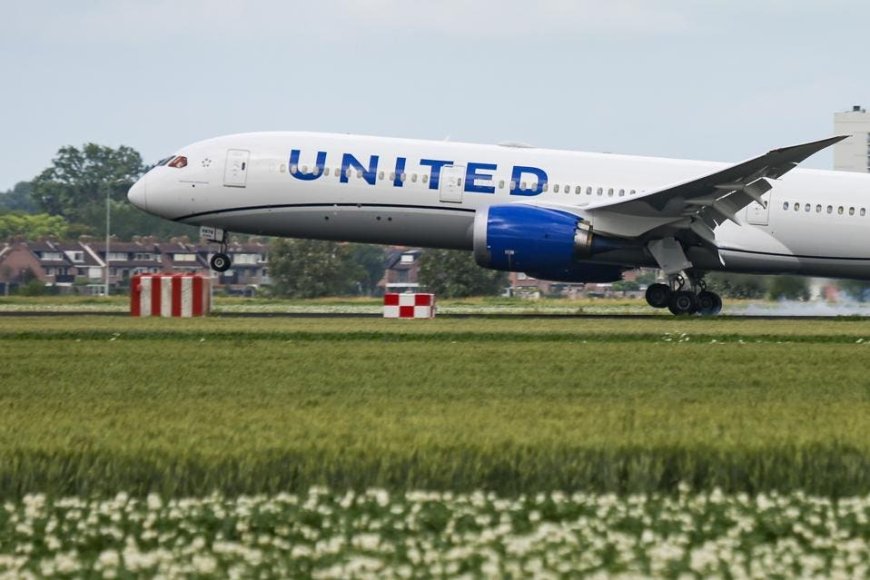Airline Stocks Experience Volatility, Leading to Year-to-Date Losses
Airline stocks face turbulence as industry dynamics shift. Find out how international routes offer a lifeline amid higher costs and labor negotiations.

In recent times, the world of airlines has seen some ups and downs. Big names like American Airlines (AAL), United (UAL), JetBlue (JBLU), and Delta (DAL) have hit a rough patch in the last part of the year. This comes after they had made good progress in the first half of the year, thanks to a surge in travel known as "revenge travel." Surprisingly, Delta is the only major airline that's still in the green for the year, though it has come down from its highest point in the summer.
Something interesting is happening here. US airlines that fly internationally are doing better compared to those that mainly fly within the country. Chris Raite, an expert in this field, says, "Things are changing. International travel makes more money, which means they can be more competitive."
A way to keep track of how airline companies are doing is through something called the US Global Jets ETF (JETS). This measures the performance of different airlines. But here's the thing - it's gone down by 30% in the last three months. This is a big drop from the 30% increase it saw in the first part of the year.
The results for the third quarter show that the industry is going through a bit of a rough patch. There are talks going on about labor, and the cost of jet fuel has gone up. Just recently, United's stock price fell by 9%. This happened after they said that their future earnings might not be as high due to problems with flights to Tel Aviv because of the Israel-Hamas conflict and higher fuel costs.
It's not a surprise to people who keep an eye on the stock market that jet fuel has become more expensive. Airlines had already warned last month that this might affect how much money they make.
Delta's CEO Ed Bastian reminded everyone in October that even though the outlook for how much money they'll make has gotten better, they're still spending more because of higher fuel and maintenance costs.
American's stock price went up after a low point that lasted for three months. They made more profit than what Wall Street was expecting. But they also said that they expect to spend more on fuel and that people might not travel as much.
Another big challenge for airlines this year is that it's more expensive to pay the people who work for them. This is because there aren't enough pilots, and so airlines had to talk with their workers about how much they should be paid.
All airlines are dealing with higher costs, but the ones that fly mostly within the country and are low-cost seem to be hit the hardest. If you look at how their stock prices have changed from the start of the year until now, companies like Frontier (ULCC), Mesa Air (MESA), JetBlue, Southwest (LUV), Alaska Air (ALK), and Spirit (SAVE) have all lost a lot. Most of them were doing the best around the middle of July, but since then, they've been going down.
In comparison, American's stock price is 8% lower, United's is down 2%, and Delta's is up almost 2%.
How much people are traveling has a big impact on how well these airlines are doing. In 2021 and 2022, people in the US went on shorter trips because of the pandemic. But this year, more people want to go to places outside the country. This helps airlines that fly internationally but makes things harder for airlines that are cheaper in the US.
Big airlines have changed what they do to respond to this. United, for example, is planning to have more seats on its flights within the US.
American's CEO Robert Isom said recently that they want to offer flights to smaller places in the US. This is part of their plan to make more money.
It looks like there aren't enough pilots, and this seems to be affecting airlines that are low-cost and mainly fly within the country more than it's affecting bigger airlines.
Even though things are a bit shaky right now, the people who run these airlines don't seem to think there's going to be a recession. They've made changes to their planes to make them more attractive to people who can spend more money. United, for example, is going to have more first-class seats by 2027.
So, even though there are some problems, the big airlines like United, American, Delta, and Southwest are in a better position to handle them compared to the smaller, low-cost airlines. It's like flying through some rough air, but they're ready for it.
Also Read: Wall Street Faces New Challenges: Rising Borrowing Costs and Middle East Tensions































































